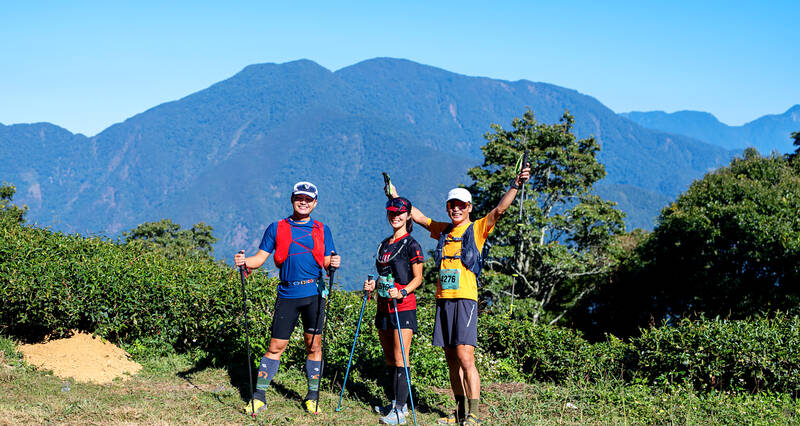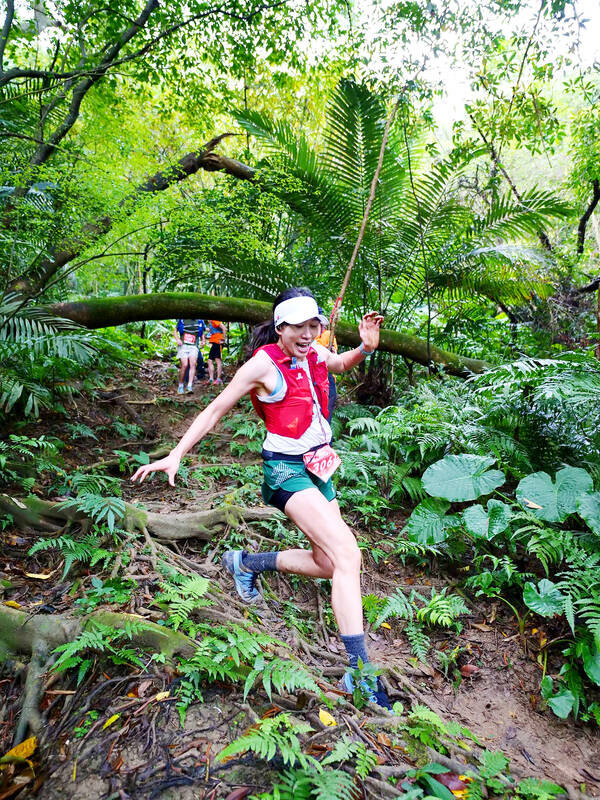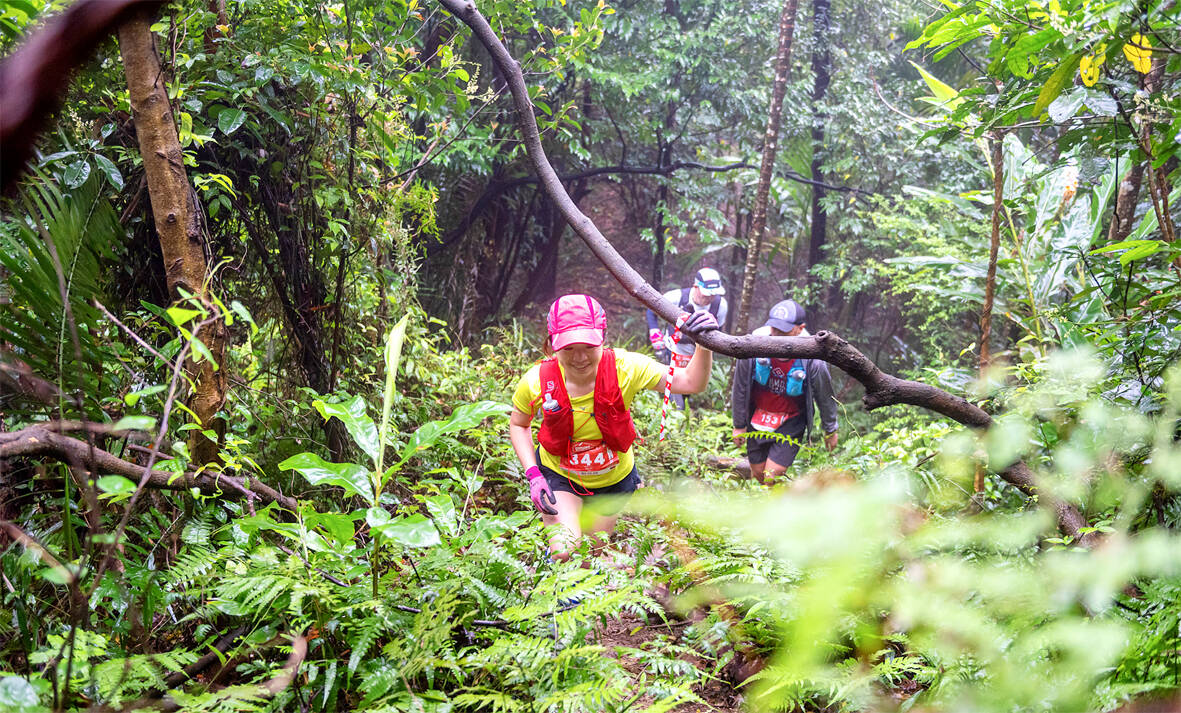As a trail runner and race organizer in Taiwan for the past decade, I’ve witnessed firsthand the incredible growth and transformation of the trail running scene. Looking ahead, this year is shaping up to be a landmark year for outdoor sports, with trail running at the forefront. This sport, which I’ve seen evolve and flourish, is now attracting a diverse mix of local and international enthusiasts.
Reflecting on the pandemic years, it’s clear that the enforced isolation and social distancing created a deep longing for outdoor activities. People, once confined indoors, have emerged with a renewed appreciation for nature’s freedom and beauty. As restrictions eased, many, including myself, turned to trail running not just for physical exercise but as a means of adventure and escape.
What makes Taiwan a trail runner’s paradise is its diverse landscapes. From the rugged mountains to serene coastal paths, the natural diversity here is unmatched. This, combined with the growing interest in health and outdoor activities post-pandemic, has set the stage for a significant expansion of our trail running community.

Photo Courtesy of Beast RunnersAP
What’s So Special About Trail Running in Taiwan?
CONNECTION TO NATURE

Photo Courtesy of Runivore
In my experience, trail running in Taiwan offers a truly intimate connection with nature. The trails, often set in lush jungles, take you through streams, up mountains, and along ridges. They’re technical and challenging; a 7km trail can take up to two hours to complete. Take Explore Your Backyard, for instance, a race I’ve been closely involved with, which includes a 1,000-meter elevation gain over just 13km.
The trails here cater to all levels of endurance, from short runs to the 104km Formosa Trail race, featuring a 5,500m elevation gain and a 30-hour limit. Trail running often requires more than just running shoes — a well-equipped pack is essential for safety and comfort.
One aspect I particularly love is the accessibility of trails, even in urban areas like Taipei. You can find solitude and stunning views, such as glimpses of Taipei 101, while being just moments away from the city’s hustle. This makes trail running a uniquely convenient escape.

Photo Courtesy of Runivore
SPOTLIGHT ON KEY TRAIL RUNNING EVENTS
The trail running scene in Taiwan offers a wide range of events, and I’ve seen many of them grow over the years. In Taipei, Explore Your Backyard, which we (Runivore) co-organize with Beast Runners, offers routes for all levels. The Wuzhi Mountain Trail Challenge is another event that showcases the beautiful trails in Taipei’s Shilin District (士林).
Heading to New Taipei City, events like Venture Treks’ Shifen Trail Shihfen District (十分) and the summer Tiger Leopard Trail in Shuangsi District (雙溪) offer breathtaking views and challenging routes. The ChaCha Trail in Yilan County, less known to foreigners but gaining popularity, offers great running experiences.
World-class events like XTERRA in Kenting and the Formosa Trail, a Western States qualifier, are drawing international runners. The Formosa Trail, in particular, has become a festival for over a thousand participants, offering some of Taiwan’s most challenging routes.
HOW TO FIND A RACE FOR YOU
If you’re interested in trail running, I recommend checking out Runner’s Plaza for event listings. The Facebook group The Sarcastic Runners is also a fantastic resource, with discussions on upcoming races and a yearly event calendar. I hope to see you at one of these events, sharing the trails and the experiences that have become a significant part of my life.
Tomasz Hasinski, a seasoned trail runner and race organizer, has called Taiwan home for over a decade. He can be reached at Tom@runivore.com.

April 28 to May 4 During the Japanese colonial era, a city’s “first” high school typically served Japanese students, while Taiwanese attended the “second” high school. Only in Taichung was this reversed. That’s because when Taichung First High School opened its doors on May 1, 1915 to serve Taiwanese students who were previously barred from secondary education, it was the only high school in town. Former principal Hideo Azukisawa threatened to quit when the government in 1922 attempted to transfer the “first” designation to a new local high school for Japanese students, leading to this unusual situation. Prior to the Taichung First

Chinese Nationalist Party (KMT) Chairman Eric Chu (朱立倫) hatched a bold plan to charge forward and seize the initiative when he held a protest in front of the Taipei City Prosecutors’ Office. Though risky, because illegal, its success would help tackle at least six problems facing both himself and the KMT. What he did not see coming was Taipei Mayor Chiang Wan-an (將萬安) tripping him up out of the gate. In spite of Chu being the most consequential and successful KMT chairman since the early 2010s — arguably saving the party from financial ruin and restoring its electoral viability —

The Ministry of Education last month proposed a nationwide ban on mobile devices in schools, aiming to curb concerns over student phone addiction. Under the revised regulation, which will take effect in August, teachers and schools will be required to collect mobile devices — including phones, laptops and wearables devices — for safekeeping during school hours, unless they are being used for educational purposes. For Chang Fong-ching (張鳳琴), the ban will have a positive impact. “It’s a good move,” says the professor in the department of

Article 2 of the Additional Articles of the Constitution of the Republic of China (中華民國憲法增修條文) stipulates that upon a vote of no confidence in the premier, the president can dissolve the legislature within 10 days. If the legislature is dissolved, a new legislative election must be held within 60 days, and the legislators’ terms will then be reckoned from that election. Two weeks ago Taipei Mayor Chiang Wan-an (蔣萬安) of the Chinese Nationalist Party (KMT) proposed that the legislature hold a vote of no confidence in the premier and dare the president to dissolve the legislature. The legislature is currently controlled